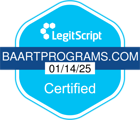Language is a powerful tool in shaping our attitudes and beliefs. Even simple terms can have a significant impact on the way we see ourselves and how we are perceived in society.
In the world of substance use and addiction, using person-first language can transform an individual’s journey in treatment and help them sustain success in recovery.
Join us as we explore how carefully chosen words can reshape perspectives and shatter stigmas that often accompany the complex issue of substance use.
Understanding Person-First Language
The person-first language movement began in the 1970s to help Americans with disabilities speak about their experiences and advocate for their needs with more respectful and inclusive language. Since then, person first language has evolved to include individuals with chronic diseases, mental health conditions, and substance use disorders.
Person first language is an approach that prioritizes the individual before the challenge they face. By consciously choosing to talk about a person that “has” a condition instead of a person that “is” a condition, we keep ourselves from defining an individual based on a label.
To understand the importance of person first language, think of it as a key to a door previously locked by stereotypes and biases. By emphasizing the individual over their struggle, we can use person-first language to unlock that door and reveal the humanity that lies within it.

How Stigma Impacts Substance Use
Although substance use disorder is a medical condition that can be treated, the stigma surrounding it can have a major impact on whether people seek help for it.
Stigma is a negative view of someone’s personal characteristics, such as age, race, beliefs, or behaviors. For people who use drugs, stigma may include feelings that they are acting immorally, not functioning well, or unsafe to be around.
Like everything else, stigma affects each person differently. Yet, research has shown that stigma can keep people with substance use disorder from asking for the treatment they need. The words we use play a big role in keeping this stigma alive.
Understanding the connection between stigma and language can help us use words as tools to have more respectful conversations, promote a culture of acceptance, and empower individuals to seek addiction treatment.
Person-First Language in Practice
Healthcare professionals play a pivotal role in reducing the stigma associated with substance use and addiction. These individuals interact with patients in treatment every day, and using person first language can help create an environment where everyone feels respected and understood.
In addition, using non-stigmatizing language helps strengthen patient and provider relationships by offering a better way to clearly communicate with one another and maintain the dignity of the individual seeking treatment.
Person first language is also an important part of several types of therapy used in addiction treatment, including:
- Cognitive Behavioral Therapy (CBT): Based on the concept that how we think impacts how we behave, CBT uses person-first language to help change an individual’s negative thoughts, so they respond better to life’s challenges.
- Dialectical Behavior Therapy (DBT): The goal of DBT is to give people the skills they need to better manage themselves in social relationships, and person first language offers a more respectful way for them to talk about their condition.
- Acceptance and Commitment Therapy (ACT): Person-first language is a helpful tool for people in the first step of ACT – accepting their feelings about their condition – so they can move forward and commit to changing their behavior.

Alternatives to Stigmatizing Words
It is important to recognize that everyone has a part in helping change perspectives and reduce stigmas in our culture and society. Using derogatory and demeaning language when talking about substance use disorder can create barriers for people needing treatment, and we should all actively work to avoid it.
Identifying stigmatizing terms and using alternatives to replace them are vital steps in prioritizing individuals rather than their struggles. Here are some thoughtful examples to help you create more respectful dialogue:
| Stigmatizing Words | Helpful Alternatives | Understanding Why |
| Junkie, addict, user, abuser | Individual with substance use disorder, person who uses substances | The first set of terms labels people as their problem and does not recognize their condition as a medical problem. |
| Habit, abuse | Substance use or misuse, drug addiction | Using habit or abuse can imply that a person is intentionally using, which does not accurately speak to the nature of addiction. |
| Dirty, clean | Testing positive or negative, being in recovery | Words like dirty or clean are not medically accurate and indicate that someone with substance use disorder is filthy. |
In addition, resources like Addictionary® can help you check the terminology you are using, explain why certain words are problematic, and offer other phrases to use instead.
By encouraging the use of person first language, we can break down stereotypes, develop inclusivity and understanding, and create a narrative that celebrates the resilience and humanity of every individual.
The Importance of Personal Choice
When it comes to talking about substance use disorder, it is important to let individuals decide how they want to be identified. Although some people may follow the philosophy of calling themselves an addict, even in recovery, others may wish to leave those terms in the past. Regardless of how we feel, we should respect an individual’s choices and give them the freedom to define themselves in a way that feels right.
The best way to have respectful conversations with people who have an addiction is to ask them what language they would like to use. While there may be an opportunity to educate them about the power of person-first language, it is ultimately up to them to choose how they want to be described. Encouraging people to make their own choices helps create an environment where everyone feels empowered and respected.

Getting Help With BAART Programs
At BAART Programs, our team believes in using person-first language to create an environment where everyone feels welcomed and supported. We develop evidence-based treatment plans to meet your unique needs, and we make sure that you feel heard and understood on your journey to recovery.
If you or someone you care about is dealing with opioid addiction, we want to help you get better. Let BAART Programs lead you on the path to positive change by contacting us today or finding a treatment center near you. We are here for you every step of the way.


